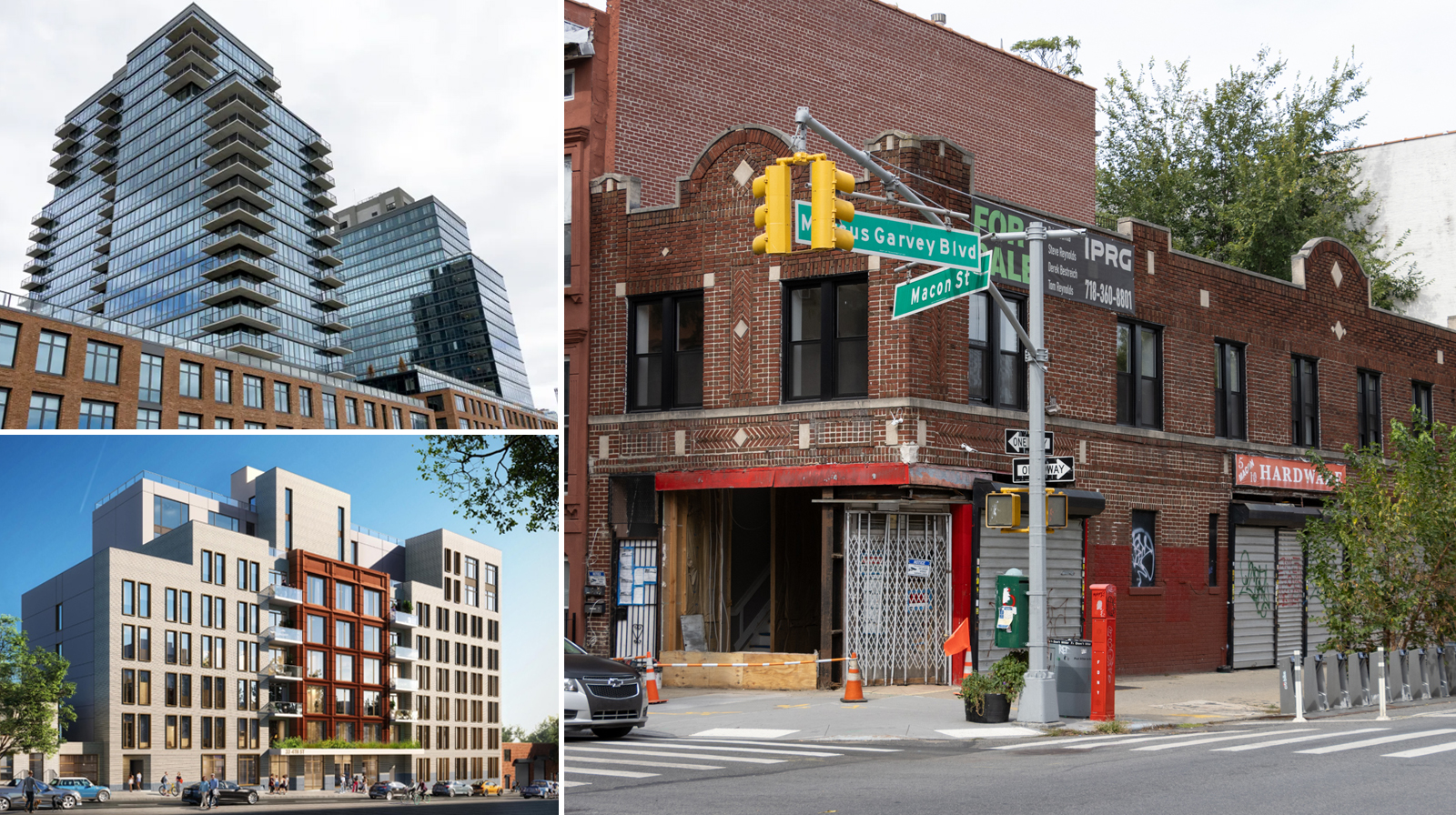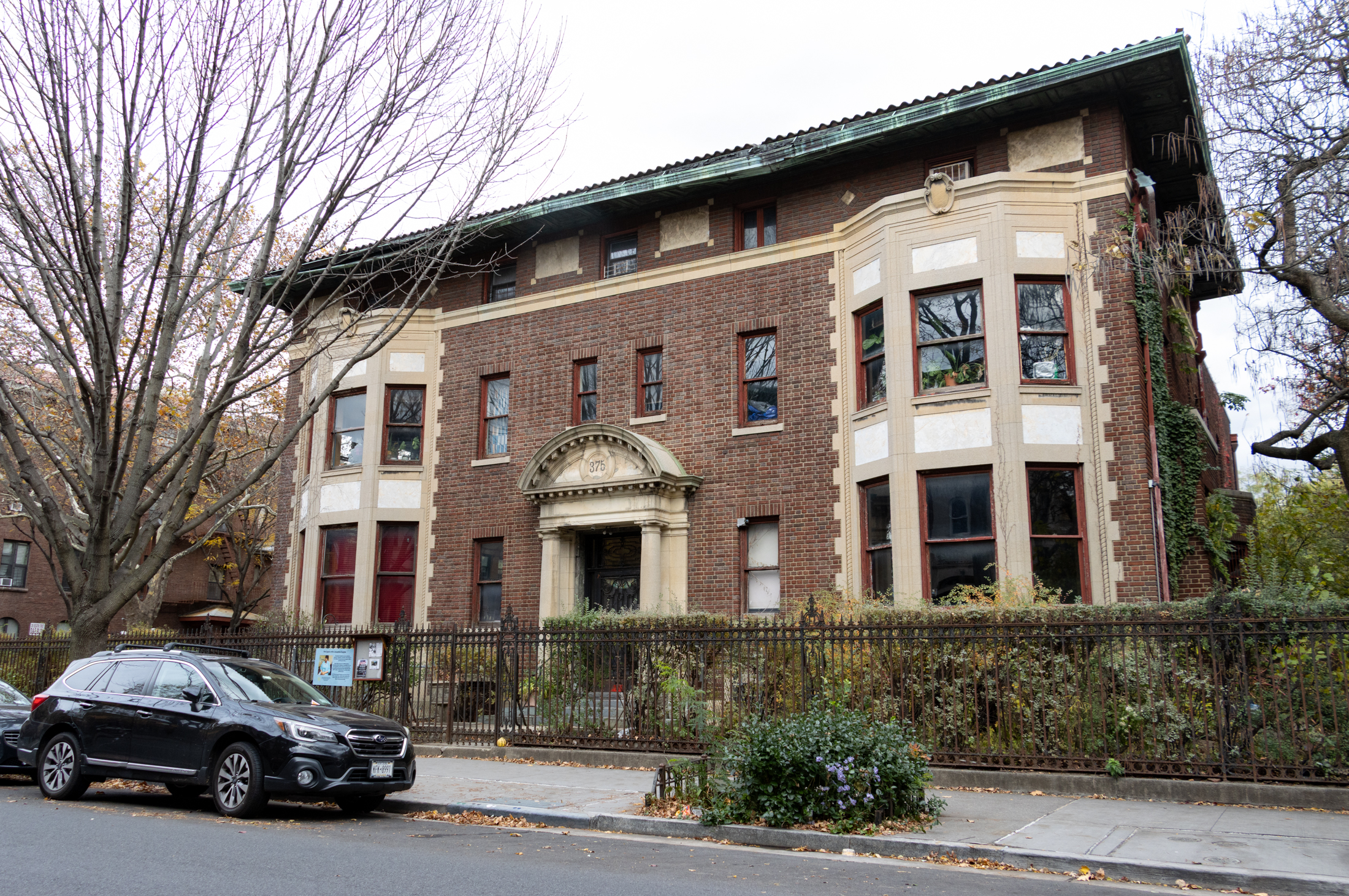Insurers See Storm Clouds Over Brooklyn
Home insurers are increasingly dropping coverage or raising fees for Brooklynites, claiming the borough’s properties are in a high-risk hurricane zone—no matter how landlocked those properties happen to be. According to an article in New York Magazine, Allstate and other big firms have been nixing policies in neighborhoods like Park Slope and Ditmas Park, saying…


Home insurers are increasingly dropping coverage or raising fees for Brooklynites, claiming the borough’s properties are in a high-risk hurricane zone—no matter how landlocked those properties happen to be. According to an article in New York Magazine, Allstate and other big firms have been nixing policies in neighborhoods like Park Slope and Ditmas Park, saying they’re vulnerable to a Katrina-like catastrophe. “There’s no differentiation [in terms of] distance to water,” notes insurance broker Banach, who says he’s seeing two or three non-renewals every week. Sure, the city’s surrounded by water, but it seems pretty boneheaded to tax owners all over Brooklyn without regard to how close they are to the coast, or whether they’re in flood zones. As the flood maps show, not all areas are created equal when it comes to the threat of flooding. Anyone have trouble getting coverage lately?
The Storm Before the Storm [New York]





Just in case you didnt know, it has been widely speculated that FEMA flood maps are woefully inaccurate.
Just ask the people in Texas living in “500 Year Flood Zones” that have been flooded several times in the last few years…
2:41 – 2:20 Here.
Well played. I think another choice would be to skip the letters to Chuck and just get Michael Moore on the case. Maybe he will insure all of us with the money he makes on the documentary…
No but seriously, the choice of where you live involves more than than just the price for the property and the taxes you pay.
Also, you could, dare I say it, self insure.
For those who dont know what that means – Basically, if you are so convinced that you are immune to Hurricanes, simply skip the windstorm coverage and put money away into an investment account every month instead of paying premium.
Just remember you are taking a risk! Just like the risk you are taking when you buy windstorm coverage. (i.e. the risk that you are paying money because you WILL have hurricane damage)
AllState ‘s net income was 5 billion last year in 2006
and excerpt from Boomberg article:
One State Farm policyholder in Mississippi was Senator Lott, who lost his home in Katrina. He sued State Farm for fraud in U.S. District Court in Jackson, after the insurer ruled that his home had been damaged by water and refused to pay him anything. “It’s long overdue for this industry to be held accountable,” Lott, 65, says. Lott and State Farm agreed to a confidential settlement in April.
Lott has introduced legislation to have insurers regulated by the federal government. That would supplant a patchwork system of regulation by states. Insurance has no body analogous to the SEC, which can refer cases to the Justice Department for criminal prosecution. That doesn’t happen with insurers. The most that state insurance departments typically do is impose civil fines when companies mistreat customers. Such sanctions are weak and infrequent, says Hunter, the former Texas insurance commissioner. Before Katrina, no state or federal prosecutor had ever investigated a nationally known property-casualty company for criminal mistreatment of policyholders. Mississippi Attorney General Jim Hood says a federal grand jury is probing insurance company claims handling after the hurricane.
2:20 Some viable choices are to live in Canada or Idaho where it is not prone to hurricanes, earthquakes, and tornadoes. Canada would not be a bad idea for most Park Slopers, they have socialized just about everything there for them. Utopia!!!!
2:13 – Point well taken. But please bear in mind I am not saying they are angels, only explaing why they are raising premiums and pulling out of lower New York markets.
If they really intended to not pay people for their losses wouldnt they just collect the huge premiums New York offers and then just not pay them when they make a claim.
Record profits or not, this is what is going on in the risk markets…
You do have a choice you know.
YOu still have not read the Bloomberg article.
Fact is insurance companies are making record profits! Some worse than others obviously. Train their people to come in low on estimates consistently – to tire out the home owners so they settle for what is offered- is one of the tactics that is used and documented.
YOu can read your policy but if the insurance company decides how little they want to pay you, or doesnt come in on replacement cost, the home owner has no option other than to sue- most people dont cause they dont have money for the lawyers, and most stupidly settle for what is initially offered.
Not a jerk – just a different political philosophy I guess…
I happen to think that people take risks every day and need to be responsible for those risks. Sadly most people dont understand insurance and just want everyone to pay pay pay when the risks we take end up hurting us.
Government does regulate insurance and addresses all complaints seriuosly.
But not understanding the risk you take (i.e. buyng a house in a hurricane zone, next to a raging river, or 2 feet above sea level) and how that can effect you is not the business of the government.
Maybe we should get rid of the entire insurance industry all together and let the government (i.e. tax payers) just pay everyone when anything goes wrong in our lives.
BTW – I read the article – seems to me the biggest disconnect is with replacement cost coverage versus actual cash value.
“They only offered to pay half the cost of fixing the damage…” If you have a ACV policy it doesnt pay to replace or fix damage, only what the depreciated value of the property was worth at the time of the loss…
Read your Policys! You get what you pay for.
2:00 – I get what you are saying, and again I dont want to seem like an insurance company apologist or anything. I just want to help people understand the Insurance company perspective and why they are in this situation.
I think they are not covering because the potential hurricane wind damage not necessarily flood. But certainly in the back of their mind is the thought that they are battleing intense litigation trying to force them to pay for uninsured flood damage in a city of 500,000 with relatively low property values. Imagine New Yorkers trying to compel them for the same thing in a city of 8 miiilion+.
Unforuntunately insurance in not a granular industry. Its all about statistics, figures, and risk, your house being 500 or 2000 feet from the nearest flood zone may not be part of the equation.
I too feel the sting, but although I dont agree, it is the unfortunate circumstances we are living in.
Guest 1.21. No one is saying insurance companies are dumb, rather people have a problem with the argument that flood risk (due to a storm surge from a hurricane or heavy rains) is a reason for non-renewal of a policy for a property that is outside of the storm surge flood zone for a category five storm. Risk should be analyzed on a more granular level when looking at potential hurricane damage, rather than a city wide policy. To implement a blanket rule with respect to all of NYC is actually not in the financial insterests of an insurance company I would imagine, since such a policy would mean that low risk properties would be ignored, and potential customers lost.
These houses have weathered several hurricanes over the past 100 to 150 years, and many of them are on ground that is outside of the predicted worse case category
5 hurricane storm surges. That is why people are frustrated.
lp
We just bought a three story 2 family bstone in Park slope. There were very few options for coverage. Chubb were the most expensive but came with very good reputation in terms of settlement. We finally went with AIG on the back of a recomendation from our Broker. Our Bill is ~4k for + $352 for flood insurance.
Some things to consider – that will impact premium.
Replacement costs
Underlying mortgage (your mortgage company may have a minimum coverage amount)
Deductible
Home security (this can save you 10-20%) so effectively pays for itself.
We went through Bollinger insurance brokers. They were very helpful and also offered us Chubb. 973 921 8141
Other than these two providers everyone else turned us down.